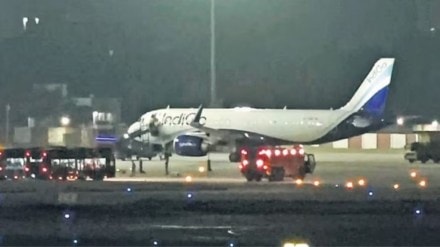Days after multiple bomb threats to flights were posted on social media, Central intelligence agencies have traced the IP addresses behind the threats to locations in London and Germany, according to a report in The Indian Express. Over 20 flights operated by Indian carriers—both domestic and international—received bomb threats this week.
On Monday, three international flights were targeted, followed by 10 more on Tuesday, and at least six additional threats the next day. All the threats, which were shared via social media platforms, were declared fake after security checks. Central intelligence agencies quickly initiated an investigation, requesting X (formerly Twitter) to provide the IP addresses linked to the posts and to deactivate the associated accounts, according to a source.
“We have received the preliminary reports and they have informed us that posts were made from three separate handles. Of these three handles, they have traced two IP addresses; two common IPs from London and Deutschland. The users have tweeted after using a virtual private network or VPN – an encrypted connection over the Internet between a device and a remote server that’s aimed at masking one’s online identity. Details of another handle are still awaited,” a source said.
Central intelligence agencies in touch with X
After receiving initial responses, Central intelligence agencies have requested additional specific details from X and are awaiting further information, according to a source.
According to Usha Rangnani, Deputy Commissioner of Police for IGI Airport, the IGI Airport Police handled seven incidents of reported bomb threats this month, all of which were confirmed to be hoaxes after thorough verification and inspection. Legal action has been initiated against those responsible to prevent future misuse and ensure the safety and security of passengers and airport operations.
Rangnani also informed that an FIR has been filed under sections 217 and 351 (4) of the BNS, as well as section 3 (1) (d) of the Suppression of Unlawful Acts against Safety of Civil Aviation Act, 1982, related to the recent hoax bomb threat targeting an Akasa Air flight. A detailed investigation is currently underway, with coordination from the relevant social media platform.
Government unveils strict aviation regulations
Meanwhile, senior officials from the Ministry of Civil Aviation (MoCA) are considering stricter regulations to enforce harsher penalties for individuals responsible for such threats, potentially including placing them on the no-fly list for Indian carriers. The Centre is also working with the Union Ministry of Home Affairs and the law ministry while reviewing anti-hoax measures implemented in other countries.
